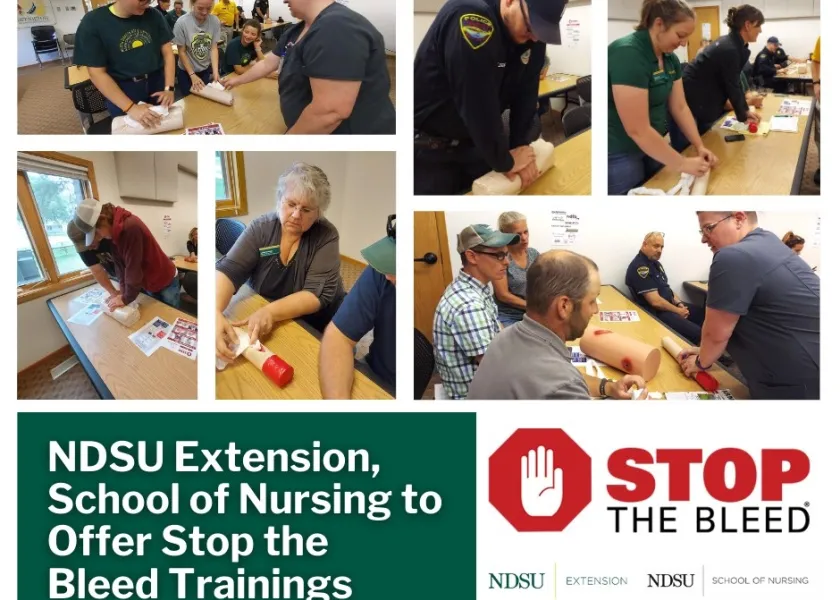All NDSU News
NDSU Extension, School of Nursing to offer Stop the Bleed trainings

A partnership with the NDSU family nurse practitioner program and NDSU Extension will bring training to residents across the state. A three-year grant of $349,018 from the U.S. Department of Agriculture – National Institute of Food and Agriculture funds the training.
Seconds matter in rural injury accidents or medical emergencies, and the time it takes first responders to travel to an injured person can be critical to survival. To help reduce deaths caused by unintentional injury, NDSU Extension and NDSU’s family nurse practitioner program are partnering to offer free, Stop the Bleed training for residents of rural communities across North Dakota. Nursing faculty from the family nurse practitioner program will travel to North Dakota counties and work with NDSU Extension agents to conduct the trainings.
Stop the Bleed is a nationally recognized, 90-minute certification program, providing participants with hands-on opportunities to recognize life-threatening bleeding and intervene effectively.
“People living in Northern Plains states have the longest travel times to the nearest hospital,” says Angie Johnson, North Dakota State University Extension farm and ranch safety coordinator. “Stop the Bleed training is especially beneficial for rural residents who could live miles away from the nearest medical facility.”
“With the NDSU School of Nursing education sites in Bismarck and in Fargo, many of our nurse practitioner graduates go on to serve people in rural communities,” says Dean Gross, director of the nurse practitioner program at NDSU. “Part of our mission is to develop dynamic nurse leaders with a strong rural focus, as part of the land grant mission. This partnership with NDSU Extension will help us strengthen our connection to the communities we serve.”
If you would like to learn more about Stop the Bleed and be notified of possible trainings near you, please fill out the public interest form. Trainings are limited to 10 to 12 participants. Personal Stop the Bleed kits will be provided on a first-come, first-serve basis.
Emergency management personnel may qualify for National Continuing Competency Requirement (NCCR) and Local Continuing Competency Requirement (LCCR) units through this training, and also may be eligible to become a certified Stop the Bleed instructor in their community.
As a student focused, land grant, research institution, we serve our citizens.